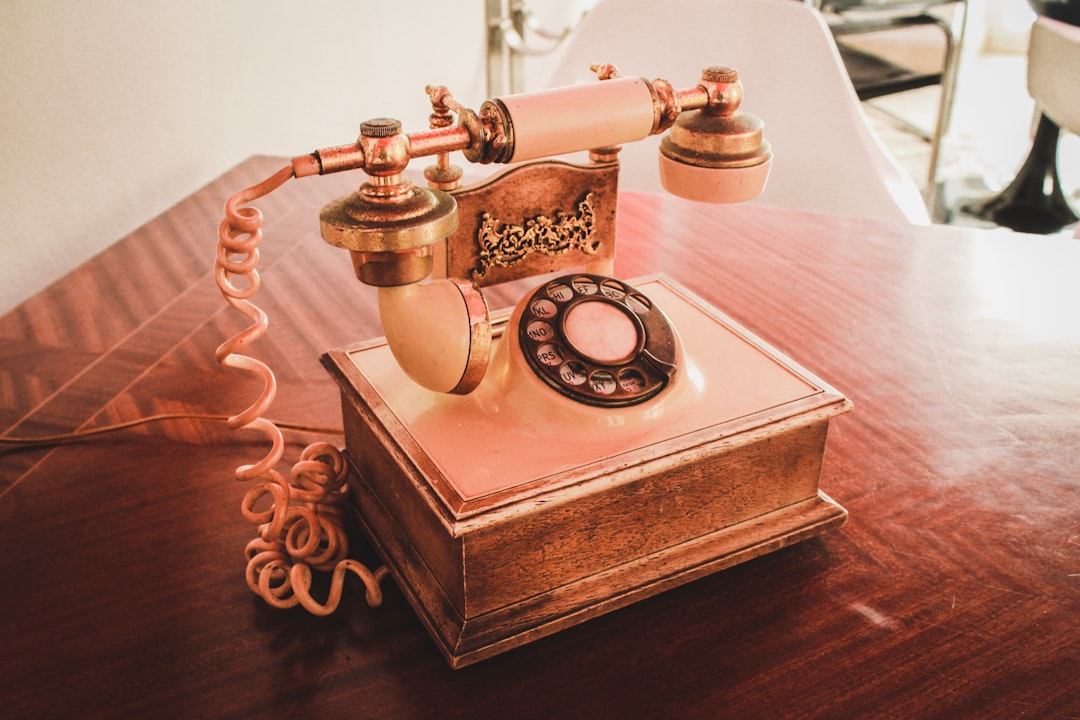Unwanted phone calls in Indiana are regulated by laws like the TCPA. Consumers can report violators to regulatory agencies, register on the Do Not Call Registry, and consult a specialized lawyer for Unwanted call Indiana for guidance, evidence collection, legal action, and protection of their rights under local legislation. Documenting calls and gathering evidence strengthen cases against persistent or harassing callers.
Tired of relentless phone calls that are anything but welcome? You’re not alone. Unwanted calls are a pervasive problem, but consumers have powerful tools at their disposal. This guide equips you with knowledge about your rights and resources, from local to national levels. Learn how to effectively report unwanted calls and when to seek legal counsel, especially if it’s for call harassment in Indiana. Understanding the steps to document and track these calls can also prove invaluable as you navigate potential legal recourse.
Understanding Your Rights Against Unwanted Calls

In many jurisdictions, including Indiana, there are laws in place to protect consumers from unwanted phone calls, often referred to as telemarketing or robocalls. Understanding your rights is the first step in taking action against these nuisance calls. The Telephone Consumer Protection Act (TCPA) grants consumers several protections, including the ability to opt-out of specific call types and file complaints with regulatory agencies for violators. If you’re facing a constant barrage of unwanted calls, it’s important to know that legal recourse is available.
Seeking advice from a lawyer specializing in unwanted call cases, such as those in Indiana, can help you navigate your rights and options. These attorneys are familiar with the TCPA and state-specific regulations, enabling them to guide you through the process of reporting these calls and potentially seeking compensation or blocking future calls. By knowing your rights and taking proactive measures, consumers can reclaim control over their phone lines and enjoy a quieter, more peaceful communication experience.
Reporting Options: Local and National Resources

When dealing with unwanted calls, consumers in Indiana have several reporting options available to them at both the local and national levels. Start by contacting your local law enforcement agency to file a report. They can guide you through the process and take appropriate action against the caller. Additionally, the Federal Trade Commission (FTC) offers a dedicated Do Not Call Registry where you can register your phone number to stop most telemarketing calls.
For more targeted assistance, consider reaching out to a lawyer specializing in unwanted calls. An Indiana lawyer can help you understand your legal rights and take aggressive measures against persistent or harassing callers. They can guide you through the reporting process with relevant authorities and even initiate legal action if necessary.
When to Involve a Lawyer for Call Harassment

If unwanted phone calls have become relentless and have a significant negative impact on your life, it may be time to consider legal action. While there are consumer resources available to help report and stop harassing calls, involving a lawyer can offer several advantages. A lawyer specializing in unwanted call Indiana can provide expert guidance tailored to local laws and regulations.
They can assist in gathering evidence, such as call logs and recordings, to strengthen your case. Additionally, a lawyer can send formal letters to the callers or their representatives, demanding an end to the harassment. In cases where the calls persist despite initial efforts, legal counsel can file a lawsuit on your behalf, potentially resulting in damages and an injunction against future harassing behavior.
Documenting the Calls: Evidence and Track Record

When reporting unwanted calls, documenting each instance is crucial. Keep a detailed record of every interaction, including the caller’s number, the date and time of the call, and any specific messages or threats made. This evidence can serve as a track record for your case if you decide to take legal action against the callers.
Having a comprehensive log, complete with notes on the frequency of calls and any attempts to stop them, can significantly strengthen your position when consulting with a lawyer for unwanted call in Indiana. Such documentation not only aids in building a solid case but also demonstrates your concerted efforts to resolve the issue, potentially expediting legal proceedings against persistent or harassing callers.
Legal Recourse and Next Steps After Reporting

After reporting unwanted calls, consumers may face a complex legal landscape, especially if the calls violate federal or state laws. The first step is to gather evidence, such as call records and any communications with the caller. This information can be crucial when taking the next steps, which might include contacting a lawyer for unwanted call Indiana.
A qualified attorney can provide guidance tailored to local regulations, like the Telephone Consumer Protection Act (TCPA). They can assist in filing a legal complaint, negotiating a settlement, or even representing you in court if necessary. It’s important to remember that each case is unique, and seeking professional help ensures your rights are protected throughout the process.






